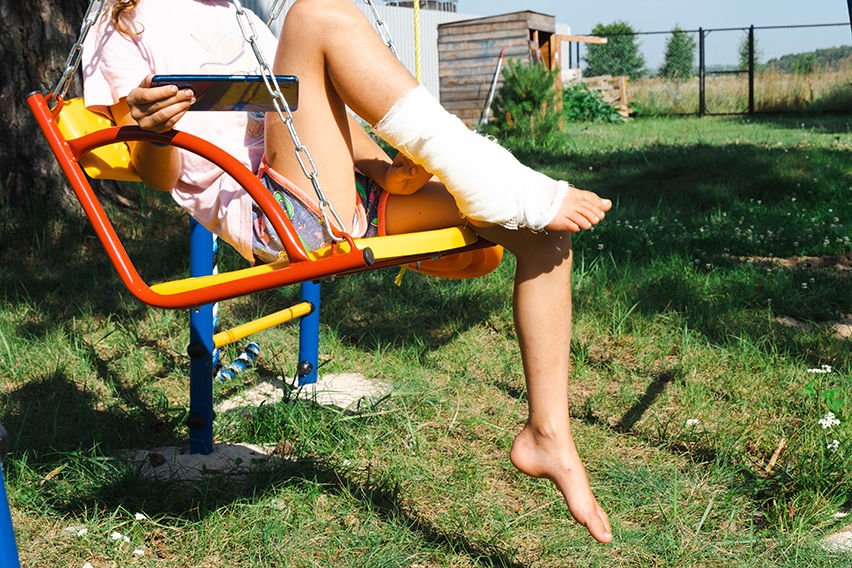Injured at a Friend’s Home? Social Guest Injury Claims in Northwest Houston
- Emily Geisler
- Oct 18
- 3 min read

Guest Injury Claims in Northwest Houston
Texas Premises Liability Law: The Duty Owed to a Licensee
Picture this: You are visiting a friend or neighbor’s home in Cypress, Hockley, or Waller. Your visit is going well, but as you approach the back door, you step onto a loose stair railing, a broken porch step, or an unlit path. You fall and are seriously hurt. You don’t want to make a fuss or file an injury claim against a friend, but medical bills are starting to pile up. If you are looking for an answer to the question, “Who pays if I am hurt at a friend’s house?” their homeowner’s insurance policy may well be the answer.
In Texas, an injury claim by a social guest is a premises liability matter and your legal status on the property is typically that of a licensee. Understanding the duty of care owed to a licensee is essential to understanding how to file and win a social guest injury claim in Northwest Houston.
Texas Premises Liability Law: The Licensee Status
Texas law categorizes visitors into three broad groups to define the level of responsibility or “duty of care” the property owner owes to each:
Invitees:
Property owners owe the highest duty of care (think of a store customer or tenant). They must inspect the premises for hidden dangers, repair or remove them, or warn invitees of the condition.
Licensees:
Property owners owe an intermediate duty of care. A licensee is one who is on the property with the owner’s knowledge and permission but for their own purposes, not for the owner’s commercial purpose. Social guests are virtually always licensees.
Trespassers:
Property owners owe the lowest duty of care to trespassers (think of a child who climbs a fence to get into a neighbor’s yard). The owner must not injure the trespasser through willful or wanton misconduct or gross negligence.
The key difference for the purpose of a social guest claim is that for a licensee, the owner does not have a duty to inspect the property to discover unknown hazards.
The Limited Duty Owed to a Social Guest in Texas
Texas law is clear as to the duty a homeowner owes a social guest (licensee) on their property:
Warn the licensee of dangerous conditions that are actually known to the owner. The dangerous condition is one that is not known to the guest and is not apparent to or fully appreciated by the guest
.The property owner must not injure the licensee by willful, wanton, or grossly negligent conduct.
To prevail on a premises liability claim as a licensee, you will generally need to prove all of the following:
That an unsafe condition existed on the property
The property owner had actual knowledge of this specific dangerous condition (actual knowledge that the railing was loose, for example)
The licensee (you) was unaware of the dangerous condition and did not fully appreciate the risk
The property owner failed to adequately warn you of the known danger
That failure to warn was the direct and proximate cause of your injuries
The requirement to prove the property owner had actual knowledge of the specific dangerous condition is the biggest hurdle to getting fair compensation in these types of cases. The homeowner’s insurance company will fight tooth and nail to prove the property owner did not know.
The Importance of an Attorney
A claim against a friend’s homeowner’s insurance is a sensitive matter that needs to be handled deftly, but also aggressively investigated.
An attorney can:
Secure evidence: An attorney will quickly investigate the scene, take pictures of the defective condition before it is repaired, and obtain evidence (maintenance logs, prior complaints, etc.) proving actual knowledge by the owner of the dangerous condition.
Deal with the insurance company:
Filing a claim against the homeowner’s insurance policy allows your attorney to prevent an emotionally fraught conversation with the homeowner. Your attorney will handle all communication and negotiate directly with the insurance company—the only party legally obligated to pay you compensation.
Maximize your recovery:
Your attorney will make sure all of your damages are calculated, including future medical care, lost income, and pain and suffering. Recovering these damages is important to your long-term financial stability.
In Texas, you have two years from the date of the injury to file a premises liability claim. If you or a loved one have been injured in a friend’s home or another residential property in Northwest Houston and believe you qualify for guest injury claims in Northwest Houston, it is important to act quickly to preserve the evidence necessary to prove the homeowner’s actual knowledge of the dangerous condition and to protect your right to compensation. Reach out to the Law Office of Shaw Clifford today for a free consultation.



Comments